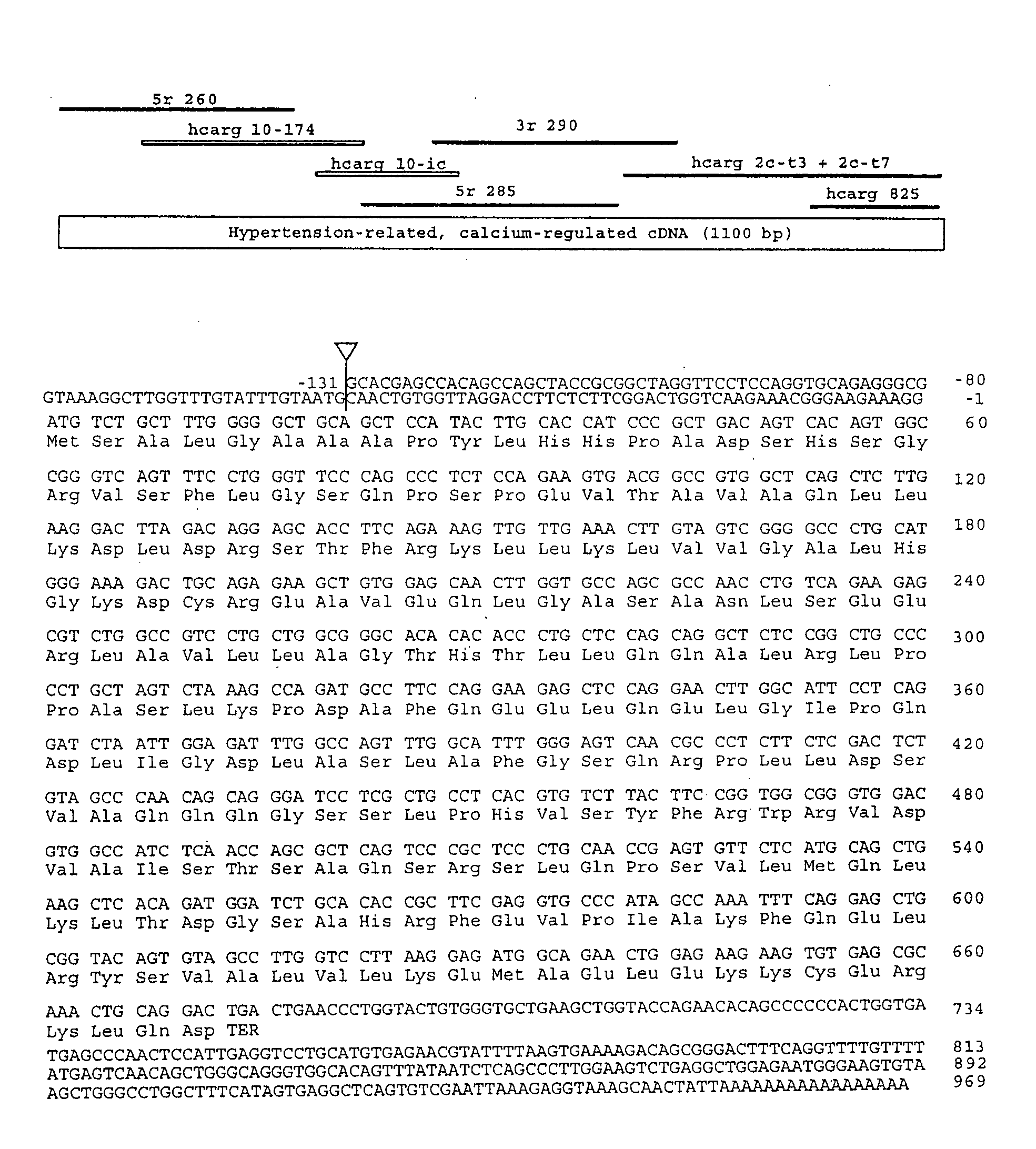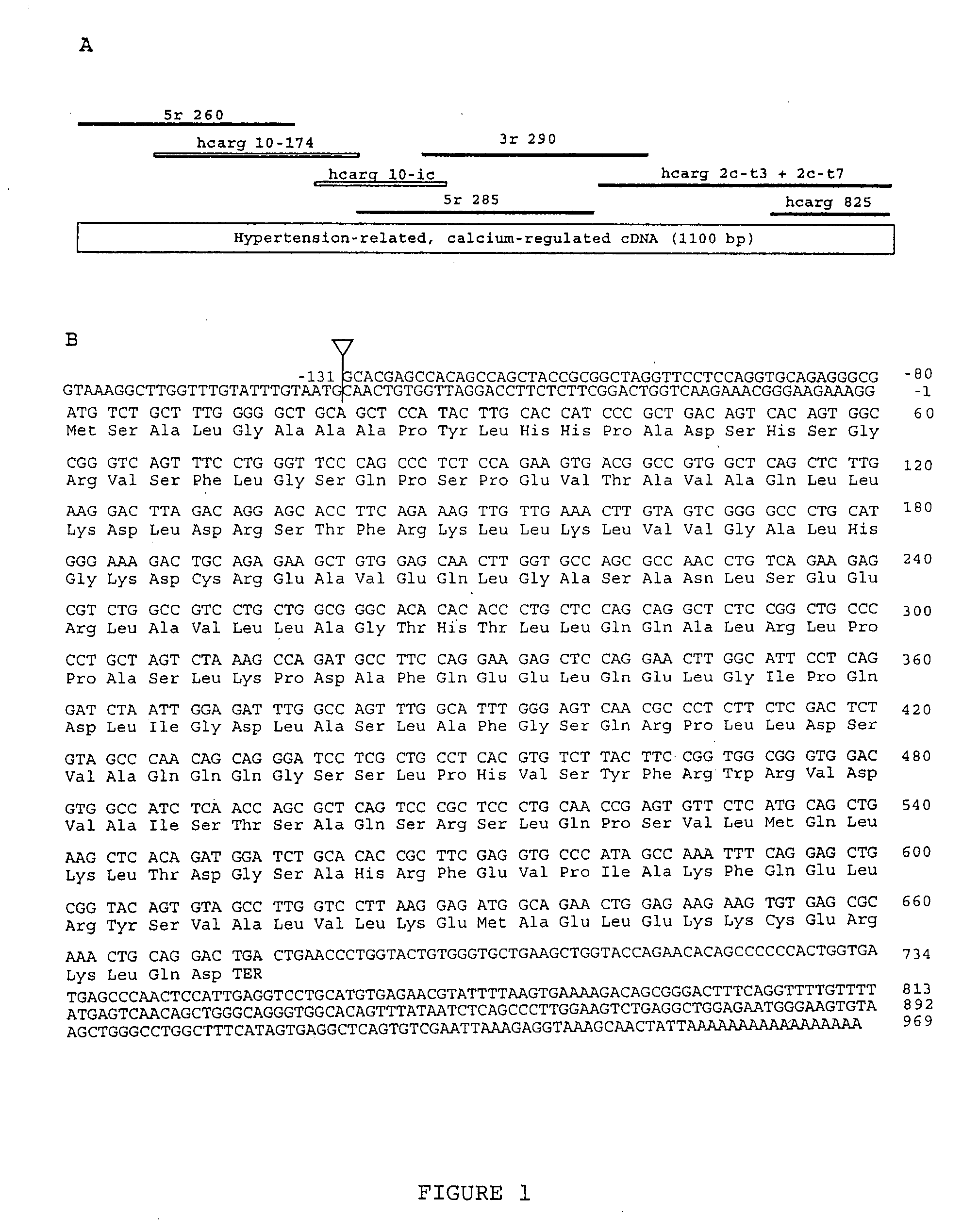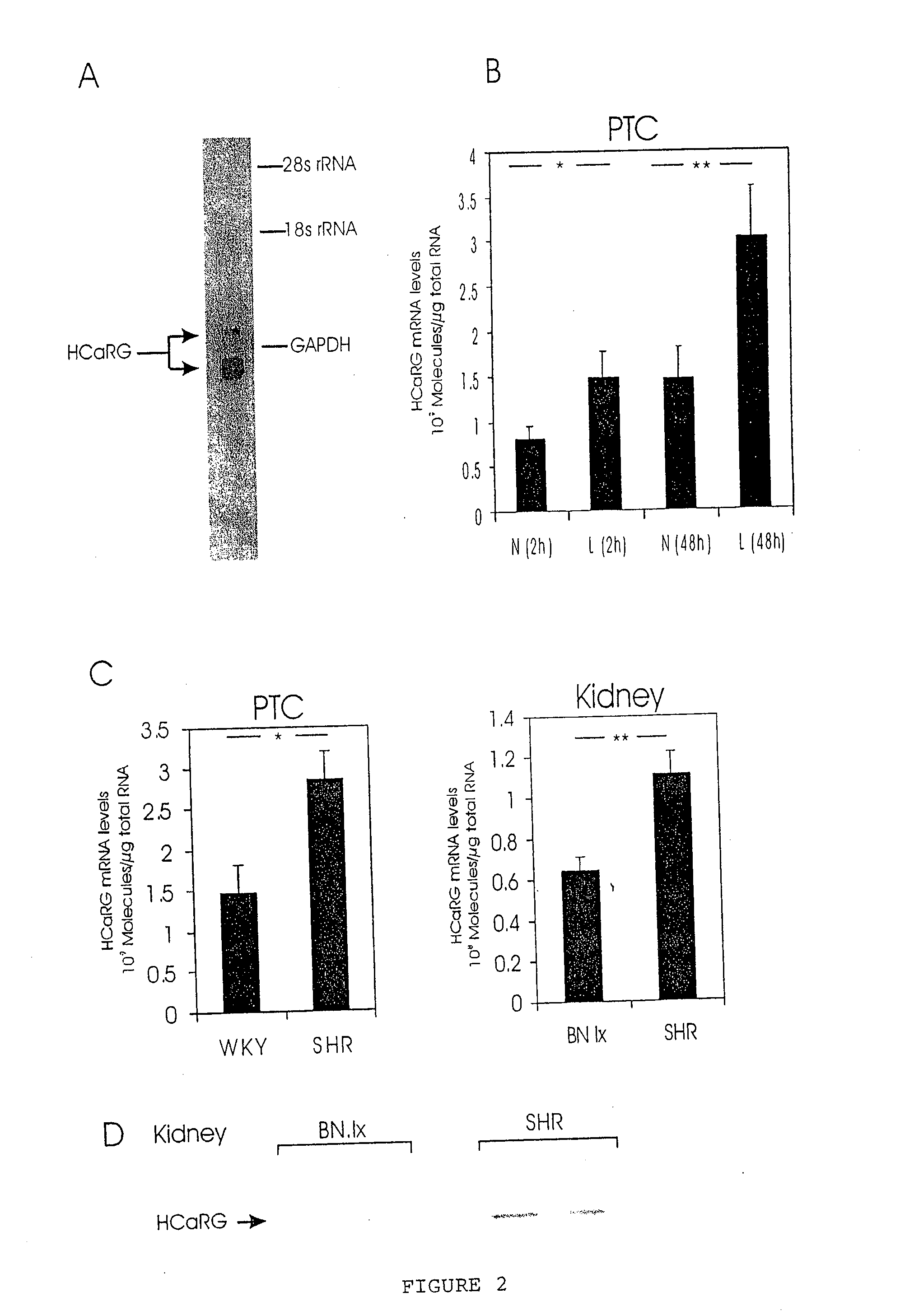HCaRG, A Novel Calcium-Regulated Gene
a calcium-regulated gene and gene technology, applied in the field of new genes, can solve the problems of insignificant increase, insufficient purification, and inability to fully express, and achieve the effect of enhancing the effect of the protein
- Summary
- Abstract
- Description
- Claims
- Application Information
AI Technical Summary
Benefits of technology
Problems solved by technology
Method used
Image
Examples
example 1
Isolation of a Novel cDNA whose Expression is Negatively Regulated by Extracellular Calcium in the SHR Parathyroid Gland
[0089]Using sense candidate primers (from a putative amino acid sequence of PHF (24)) and a hybrid oligo dT primer, 3′-RACE experiments, performed on total RNA extracted from SHR PTC cultured in low-calcium medium, generated 1 major 700-bp fragment that was digested and cloned in the BamH I site of pSP72. As a BamH I site was present in the 700-bp fragment, a recombinant plasmid containing a 300-bp insert was isolated and sequenced. This fragment was used to screen the PTC library and to generate new oligonucleotide primers to extend the cDNA towards the 5′- and 3′-ends by RACE. From 7 overlapping DNA fragments isolated in the above experiments and from SHR PTC cDNA library screening, a 1100-bp cDNA was reconstituted (FIG. 1A). The rat 1100-bp reconstituted cDNA sequence contained an open reading frame of 224 codons preceded by 2 in-frame stop codons and followed b...
example 2
Sequence and Structure of HCaRG cDNA
[0092]The deduced protein contained 224 amino acids with a calculated molecular weight of 22456 Da. The estimated pi of the protein was 6.0. It comprised no known membrane-spanning motif but had an estimated 67% a-helix content. The absence of a putative signal peptide sequence suggested an intracellular protein. There were 2 cysteines In the sequence, indicating possible intra- or inter-molecular disulfide bridges (Cys 64-cys-218). The protein had several putative phosphorylation sites for C- and A-kinases and 1 potential Asn-glycosylation site (Asn 76). To confirm that HCaRG mRNA encodes a peptide of expected size, the HCaRG cDNA inserted into pSP72 was incubated in vitro in a coupled transcription / translation labeling system. It was transcribed by T7 RNA polymerase, and translated in rabbit reticulocyte lysate. As shown in FIG. 3 (lane 4), HCaRG mRNA directed the synthesis of a peptide with a molecular mass of 27 kDa which closely corresponded ...
example 3
Cloning of Human HCaRG
[0093]The present inventors then used a 439-bp cDNA fragment of rat HCaRG (+1 to +440 in FIG. 1) to screen a human VSMC cDNA library. The present inventors identified several positive clones that were purified, subcloned in pBluescript vector and sequenced. The present Inventors obtained a 1355-bp sequence containing full length human cDNA, while all other clones contained only partial sequences. A recent sequence search in GenBank revealed a region with complete DNA sequence homology within 3 cosmids containing the zinc finger protein 7 (ZFP7) gene (accession numbers AF124523, AF146367 and AF118808). Although the nucleotide sequence of human HCaRG could be found in these cosmids, the present inventors are the first to assign an expressed gene sequence to this DNA region.
[0094]Sequence comparison between human HCaRG and rat HCaRG showed 80% identity at the nucleotide level (data not presented) and, similarly, 80% homology at the amino acid level (FIG. 4). Analy...
PUM
| Property | Measurement | Unit |
|---|---|---|
| molecular mass | aaaaa | aaaaa |
| pH | aaaaa | aaaaa |
| pH | aaaaa | aaaaa |
Abstract
Description
Claims
Application Information
 Login to View More
Login to View More - R&D
- Intellectual Property
- Life Sciences
- Materials
- Tech Scout
- Unparalleled Data Quality
- Higher Quality Content
- 60% Fewer Hallucinations
Browse by: Latest US Patents, China's latest patents, Technical Efficacy Thesaurus, Application Domain, Technology Topic, Popular Technical Reports.
© 2025 PatSnap. All rights reserved.Legal|Privacy policy|Modern Slavery Act Transparency Statement|Sitemap|About US| Contact US: help@patsnap.com



